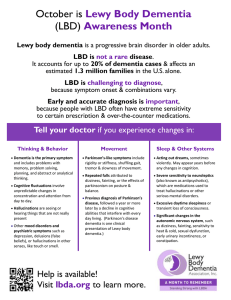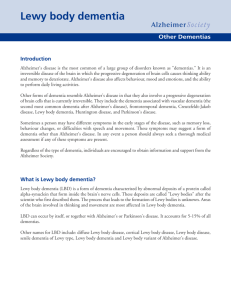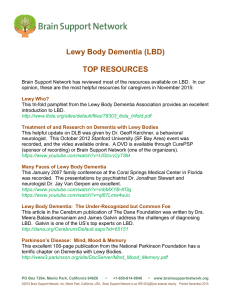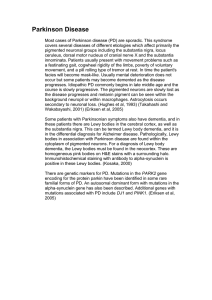Lewy Body Dementia Commonly Misdiagnosed as Alzheimer`s
advertisement
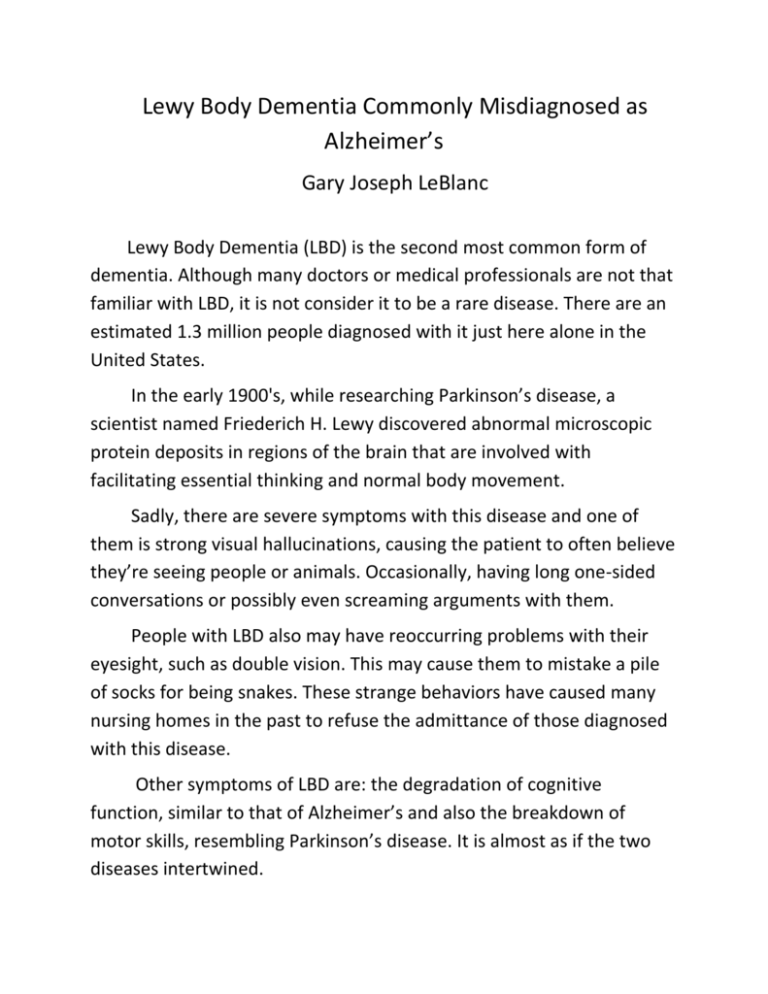
Lewy Body Dementia Commonly Misdiagnosed as Alzheimer’s Gary Joseph LeBlanc Lewy Body Dementia (LBD) is the second most common form of dementia. Although many doctors or medical professionals are not that familiar with LBD, it is not consider it to be a rare disease. There are an estimated 1.3 million people diagnosed with it just here alone in the United States. In the early 1900's, while researching Parkinson’s disease, a scientist named Friederich H. Lewy discovered abnormal microscopic protein deposits in regions of the brain that are involved with facilitating essential thinking and normal body movement. Sadly, there are severe symptoms with this disease and one of them is strong visual hallucinations, causing the patient to often believe they’re seeing people or animals. Occasionally, having long one-sided conversations or possibly even screaming arguments with them. People with LBD also may have reoccurring problems with their eyesight, such as double vision. This may cause them to mistake a pile of socks for being snakes. These strange behaviors have caused many nursing homes in the past to refuse the admittance of those diagnosed with this disease. Other symptoms of LBD are: the degradation of cognitive function, similar to that of Alzheimer’s and also the breakdown of motor skills, resembling Parkinson’s disease. It is almost as if the two diseases intertwined. In its early stages LBD is often confused with Alzheimer’s. However, it tends to progress more rapidly. All types of dementia can be difficult to properly diagnose and even more so in the aged population. The typical route of this diagnosis begins through a persons’ medical history and focuses on the pattern of symptoms. Doctors are usually looking for the hallucinations and that characteristic blank stare before making a diagnosis of probable LBD. Unfortunately, as with Alzheimer’s, the only 100 percent foolproof diagnosis is through an autopsy. I can only imagine the difficulties in caring for someone with this disease. When caring for my dad with Alzheimer’s, I have to say that probably the hardest events we endured were the hallucinations. According to the Lewy Body Dementia Association most persons with the disease treated with antipsychotic medication have severe side-effects, making prescribing medication very challenging for this disease. The drugs currently used for Alzheimer’s or Parkinson’s may also cause adverse effects. As I said many times before, it is vitally important to receive a proper diagnosis really when treating someone for any form of dementia. While at the present time there is no cure for LBD, the aggressive research into this disease may also help in the understanding of other forms of dementia.
